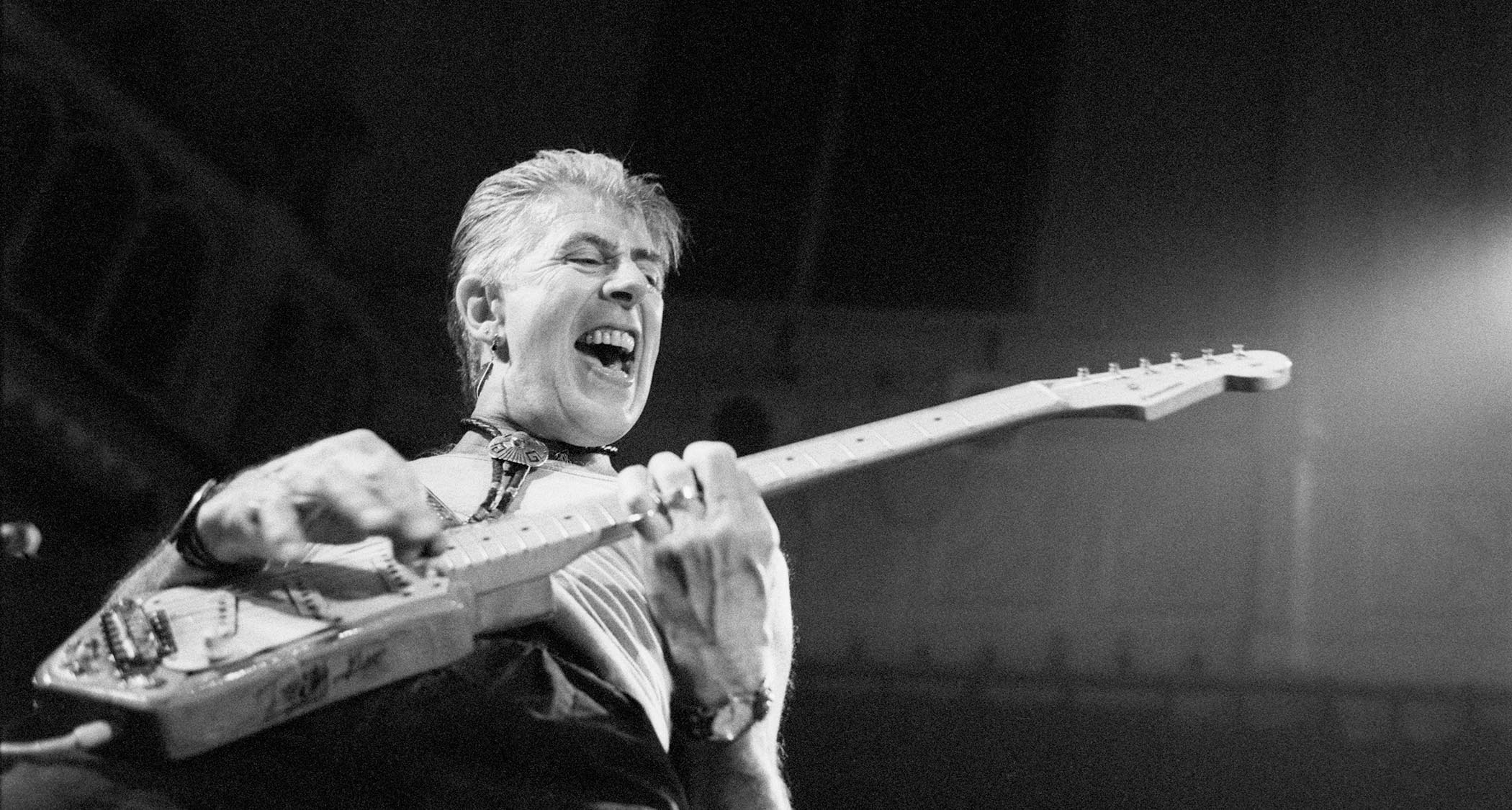“He taught me that it was OK to play the music you wanted to play. He was my mentor and a surrogate father, too”: Why John Mayall was the godfather of British blues guitar
Best known for his Bluesbreakers band, which launched the careers of Eric Clapton, Peter Green and Mick Taylor, Mayall was a gifted pianist, guitarist and harmonica player

On 22 July, blues legend and bandleader John Mayall died at his home in California. He was 90 years old. Mayall was born in Macclesfield in 1933, and first courted music by scouring his father’s imported collection of blues 78s, before teaching himself piano, guitar and harmonica.
After completing national service in Korea, Mayall returned to Britain in the 1950s, unimpressed by, according to Classic Rock magazine, “a monopoly of trad-jazz bands all playing the same tunes.”
As Joe Bonamassa shares in his tribute, “John’s importance in music is as profound as the guitarists he hired.” This is a pertinent comment before we even consider the careers Mayall nurtured, and the calibre of musicians that were attached to his bands across the years.
Although Mayall had been involved with music for many years, starting groups such as R&B dance band the Powerhouse Four at art college in Manchester, and the Blues Syndicate after military service, in the early ’60s he decided to focus more seriously on music and moved to London, throwing himself into the city and forming the Bluesbreakers in 1963.
The band’s lineup was continually shifting, with soon-to-be guitar legend Eric Clapton replacing Roger Dean in 1965. This resulted in Blues Breakers With Eric Clapton in 1966.
Often considered Mayall’s greatest achievement, ‘The Beano Album’ (nicknamed due to an uncooperative Clapton reading the aforementioned comic on the cover) evolved the sound of the electric guitar, with the 21-year-old guitarist’s switch from Fender Telecaster to a Gibson Les Paul and 50-watt Marshall amplifier.
Not to be undone by Clapton’s departure in July 1966 to form Cream, Mayall hired Peter Green and claimed to producer Mike Vernon that he was ‘better’ than Clapton: ‘“You wait, in a couple of years he’s going to be the best.”
Get The Pick Newsletter
All the latest guitar news, interviews, lessons, reviews, deals and more, direct to your inbox!
When I was a young man and about to quit music he found me, took me into his home and asked me to join his band
Eric Clapton
The Bluesbreakers’ second studio album, A Hard Road, was a great effort, with much-deserved praise going to Mayall for his skills as bandleader through this ever-changing line up, as well as plaudits to Green for his elegant guitar and vocal contributions.
As Mayall told the Guardian in 2014, “In blues history, you find bands formed around the bandleaders, trying to realise the sound they wanted. I was bandleader as well as a frontman.”
Mayall’s drive saw the Bluesbreakers release numerous albums throughout the ’60s and ’70s, and the band’s conveyor belt of members included Mick Fleetwood, John McVie, Mick Taylor (who Mayall also recommended to Mick Jagger after Brian Jones died) and others, who joined and left the outfit.
Several of the albums from this period, such as Blues From Laurel Canyon, Bare Wires and Looking Back, are considered high points and examples of when Mayall began to create his particularly personal sound.
Although often considered primarily a piano player and organist, Mayall was an accomplished guitarist and a great blues harp player. He loved to decorate guitars and famously played a nine-string in the early days.
But he also told us in 2014 that “the one on the cover of A Special Life is my favourite. It’s an Eric Johnson Stratocaster in origin, but as with all my guitars I cut them up and make personal designs out of them.”
However, later Mayall took a simpler route, telling Guitar World in 2020 that his sunburst Gibson ES-125 was “the only guitar I take on tour; I just pick it up and plug it in, and I’ve never used any special tunings over the years.”
Mayall’s career barely slowed as the decades rolled by. In 1984, he reformed the Bluesbreakers, going on to put out albums such as Behind The Iron Curtain and Chicago Line, playing numerous shows before retiring the Bluesbreakers name in 2008.
He then formed a new band and released albums like Tough, with a leaner, four- or five-piece set-up. In 2013, he signed to Forty Below Records, and was finally inducted into the Blues Hall of Fame in 2016, an overdue nod to a prolific and generous master of his craft. And on that note we’ll leave the last word to Clapton.
“When I was a young man and about to quit music he found me, took me into his home and asked me to join his band,” Slowhand recalled in an emotional tribute.
“He taught me that it was okay to play the music you wanted to play. He was my mentor and a surrogate father, too. He taught me all I really know, and gave me the courage and enthusiasm to express myself without fear or without limit. I’ll miss him. Thank you, John, I love you.”
Glenn Kimpton is a freelance writer based in the west of England. His interest in English folk music came through players like Chris Wood and Martin Carthy, who also steered him towards alternate guitar tunings. From there, the solo acoustic instrumental genre, sometimes called American Primitive, became more important, with guitarists like Jack Rose, Glenn Jones and Robbie Basho eventually giving way to more contemporary players like William Tyler and Nick Jonah Davis. Most recently, Glenn has focused on a more improvised and experimental side to solo acoustic playing, both through his writing and his own music, with players like Bill Orcutt and Tashi Dorji being particularly significant.
“The rest of the world didn't know that the world's greatest guitarist was playing a weekend gig at this place in Chelmsford”: The Aristocrats' Bryan Beller recalls the moment he met Guthrie Govan and formed a new kind of supergroup
Carlos Santana hospitalized following pre-show medical emergency






![[from left] George Harrison with his Gretsch Country Gentleman, Norman Harris of Norman's Rare Guitars holds a gold-top Les Paul, John Fogerty with his legendary 1969 Rickenbacker](https://cdn.mos.cms.futurecdn.net/TuH3nuhn9etqjdn5sy4ntW.jpg)







